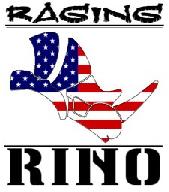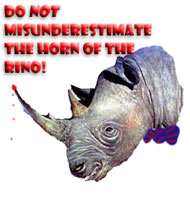September 28, 2004
Banned Books Time
Jen(nifer) notes that we are in the midst of Banned Books Week and provides a list of the "One Hundred Most Frequently Challenged Books 1990-2000." I really don't know what that means - Challenged where? By whom? How? But it is amusing to see that there is no particular ideological monopoly at work here.
So here's today's game - go through the list and highlight the ones you've read. Feel free to add commentary, as I have.
I've never even heard of a great many of these. And I certainly object strongly to some of them. But the idea that they should be "banned" - in the sense that a government agency should decide whether or not they are available - is, of course, appalling.
Scary Stories (Series) by Alvin Schwartz
Daddy’s Roommate by Michael Willhoite
I Know Why the Caged Bird Sings by Maya Angelou
The Chocolate War by Robert Cormier
The Adventures of Huckleberry Finn by Mark Twain
Of Mice and Men by John Steinbeck In fact, the only Steinbeck really worth reading.
Harry Potter (Series) by J.K. Rowling
Forever by Judy Blume
Bridge to Terabithia by Katherine Paterson
Alice (Series) by Phyllis Reynolds Naylor
Heather Has Two Mommies by Leslea Newman
My Brother Sam is Dead by James Lincoln Collier and Christopher Collier
The Catcher in the Rye by J.D. Salinger
The Giver by Lois Lowry
It’s Perfectly Normal by Robie Harris
Goosebumps (Series) by R.L. Stine
A Day No Pigs Would Dieby Robert Newton Peck
The Color Purple by Alice Walker
Sex by Madonna
Earth’s Children (Series) by Jean M. Auel
The Great Gilly Hopkins by Katherine Paterson
A Wrinkle in Time by Madeleine L’Engle
Go Ask Alice by Anonymous
Fallen Angels by Walter Dean Myers
In the Night Kitchen by Maurice Sendak
The Stupids (Series) by Harry Allard
The Witches by Roald Dahl
The New Joy of Gay Sex by Charles Silverstein
Anastasia Krupnik (Series) by Lois Lowry
The Goats by Brock Cole
Kaffir Boy by Mark Mathabane
Blubber by Judy Blume
Killing Mr. Griffin by Lois Duncan
Halloween ABC by Eve Merriam
We All Fall Down by Robert Cormier
Final Exit by Derek Humphry
The Handmaid’s Tale by Margaret Atwood
Julie of the Wolves by Jean Craighead George
The Bluest Eye by Toni Morrison
What’s Happening to my Body? Book for Girls: A Growing-Up Guide for Parents & Daughters by Lynda Madaras
To Kill a Mockingbird by Harper Lee
Beloved by Toni Morrison
The Outsiders by S.E. Hinton
The Pigman by Paul Zindel
Bumps in the Night by Harry Allard
Deenie by Judy Blume
Flowers for Algernon by Daniel Keyes
Annie on my Mind by Nancy Garden
The Boy Who Lost His Face by Louis Sachar
Cross Your Fingers, Spit in Your Hat by Alvin Schwartz
A Light in the Attic by Shel Silverstein
Brave New World by Aldous Huxley
Sleeping Beauty Trilogy by A.N. Roquelaure (Anne Rice)
Asking About Sex and Growing Up by Joanna Cole
Cujo by Stephen King
James and the Giant Peach by Roald Dahl
The Anarchist Cookbook by William Powell
Boys and Sex by Wardell Pomeroy
Ordinary People by Judith Guest
American Psycho by Bret Easton Ellis
What’s Happening to my Body? Book for Boys: A Growing-Up Guide for Parents & Sons by Lynda Madaras
Are You There, God? It’s Me, Margaret by Judy Blume
Crazy Lady by Jane Conly
Athletic Shorts by Chris Crutcher
Fade by Robert Cormier
Guess What? by Mem Fox
The House of Spirits by Isabel Allende
The Face on the Milk Carton by Caroline Cooney
Slaughterhouse-Five by Kurt Vonnegut
Lord of the Flies by William Golding
Native Son by Richard Wright
Women on Top: How Real Life Has Changed Women’s Fantasies by Nancy Friday
Curses, Hexes and Spells by Daniel Cohen
Jack by A.M. Homes
Bless Me, Ultima by Rudolfo A. Anaya
Where Did I Come From? by Peter Mayle
Carrie by Stephen King
Tiger Eyes by Judy Blume
On My Honor by Marion Dane Bauer
Arizona Kid by Ron Koertge
Family Secrets by Norma Klein
Mommy Laid An Egg by Babette Cole
The Dead Zone by Stephen King
The Adventures of Tom Sawyer by Mark Twain
Song of Solomon by Toni Morrison
Always Running by Luis Rodriguez
Private Parts by Howard Stern
Where’s Waldo? by Martin Hanford Why? Why on Earth?
Summer of My German Soldier by Bette Greene
Little Black Sambo by Helen Bannerman
Pillars of the Earth by Ken Follett
Running Loose by Chris Crutcher
Sex Education by Jenny Davis
The Drowning of Stephen Jones by Bette Greene
Girls and Sex by Wardell Pomeroy
How to Eat Fried Worms by Thomas Rockwell
View from the Cherry Tree by Willo Davis Roberts
The Headless Cupid by Zilpha Keatley Snyder
The Terrorist by Caroline Cooney
Jump Ship to Freedom by James Lincoln Collier and Christopher Collier
A totally bogus week. The number of attempts to "ban" books were less than 500 confirmed times last year according to the events sponsor. How many billions of library books are in libraries in the US? And "ban" means a request by someone to remove a book from circulation, usually denied. Hardly Nazis burning books.
Posted by: Bob at September 28, 2004 10:24 AMLike I say, I don't know anything about how this list was put together. I just thought it would be fun to play with. What you say is actually quite encouraging.
Posted by: Robert the LB at September 28, 2004 10:46 AMI recognize some of the titles (such as "Heather Has Two Mommies") as books "challenged," typically by parents, when proposed for use in elementary or junior high school curriculums. This is not uncommon for books in the area of the "sex education" of children. It was not proposed that the books be "banned," just eliminated from a particular school's curriculum. Presumably, any interested person could obtain a copy through Amazon, Barnes & Noble, etc.
Other books have been challenged when placed on the shelves of public libraries, typically on the grounds of "pornography," such as Madonna's "Sex."
Again, these challenges typically address a concern for the availability of prurient material through a library, and don't ask that the book be "banned." These concerns now extend to the internet, now that libraries often offer internet access to the public, including to children.
Of course, some books are routinely reviewed by the government before publication, and possibly censored, if they are written by former government employees who propose to use or reveal the contents of "secret" documents or operations. Richard Clarke's recent book is a good example.
The last book I can recall that the government actually wanted to ban was the Penatgon Papers, if one can consider that a "book." It was eventually published as a book, but the government sued to keep it out of the newspapers. I believe the New York Times ultimately published it as a book. One might also include the transcripts from Nixon's White House in this category as well.
Posted by: MD at September 28, 2004 11:50 AMOne more category. I have heard educators and literary critics "challenge" some books, typically in the context of school summer reading lists or some such, purely on the grounds of awfulness. Maya Angelou's poetry comes to mind. I recently heard that some school district in Mass had assigned Tupak's "poetry" for a summer school reading list, and the commentary began almost immediately, mostly on the grounds that the stuff was just plain awful.
Posted by: MD at September 28, 2004 12:04 PMActually, the government has banned several books that remain on the no-publish list to this day. Senate bill S606, passed in 2000 (I think) made it illegal for private citizens to publish or disseminate books that taught the construction of things like bombs and other explosive devices. "The Anarchist Cookbook" would be among them.
Posted by: Dave D at September 28, 2004 02:52 PM



